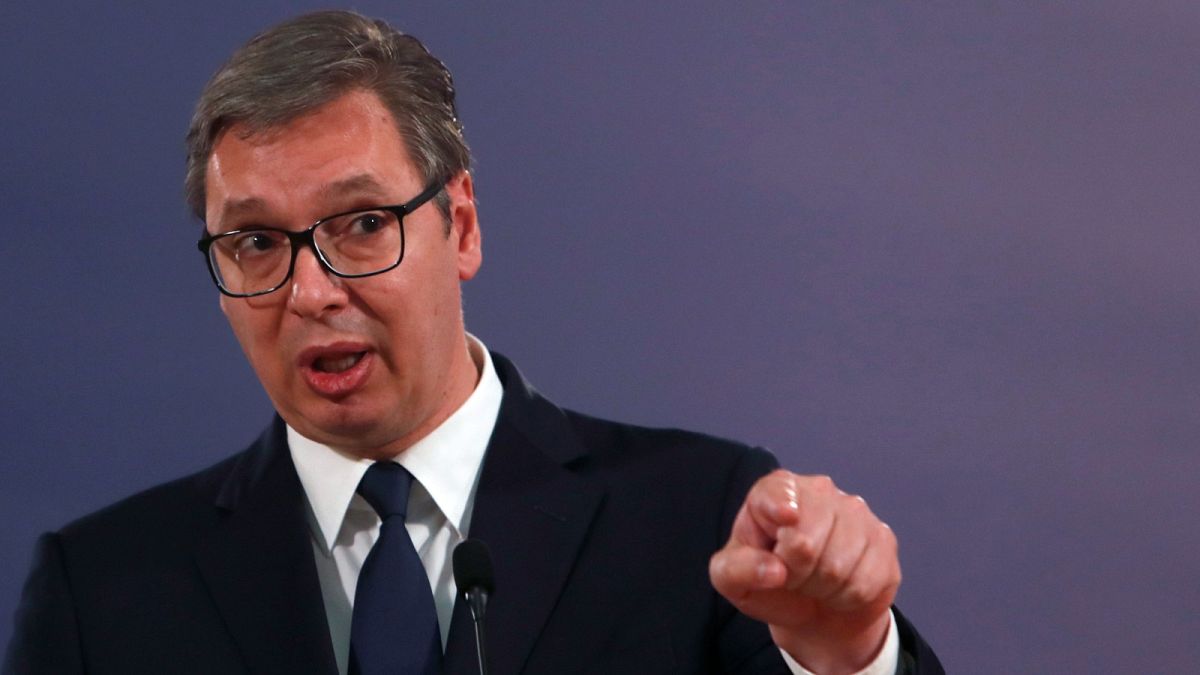Montenegrin lawmakers on Thursday ousted a pro-Serb government minister who denied the 1995 massacre in Srebrenica was genocide.
Serbian President Aleksandar Vucic has hit back after a Montenegrin government minister was sacked for calling into question the massacre of 8,000 Bosnian Muslims by Serb forces in 1995.
Vucic said that Serbia would "continue to hold its head up high" after a new law made denial of the massacre illegal and dismissed Justice Minister Vladimir Leposavic.
It comes just a week after former Bosnian Serb commander Ratko Mladic lost his appeal on genocide charges for ordering the massacre and was sentenced to spend the rest of his life in prison.
Some nationalist Serbs deny Srebrenica was genocide
Mladic is considered a hero by some nationalist Serbs, who continue to deny that a massacre took place at Srebrenica. Leposavic, a pro-Serb politician in Montenegro's governing coalition, said he would only recognise Srebrenica as genocide "when it is established unequivocally".
Speaking about the resolution and the dismissal of the minister, Vucic said: "We expected it from all those who participated in the attempt to create so-called independent Kosovo, and from all those who do not like the fact that Serbia is advancing the fastest in its history.
"We expected them from all those who would like to weaken Serbia, but we did not expect it from those who were always closest to us.”
Montenegro seceded from Serbia in 2006
Montenegro seceded from Serbia in 2006 after a referendum on independence and was led by a pro-EU government that had difficult relations with Belgrade until August 2020.
Last year's election in Montenegro saw a coalition of parties overturn Milo Djukanovic's Democratic Party of Socialists (DPS) after 30 years in power. The coalition contained a number of hardline Serbian nationalist MPs as well as civil society groups and environmentalists.
Thursday's vote on Srebrenica split the coalition for the first time, with 55 out of 80 MPs in favour and 19 against. On replacing Leposavic, the vote was 43 to 27.
The resolution by Montenegro was supported by others in Europe, including European Parliament President David Sassoli.
“I applaud the resolution passed last night by the Parliament of Montenegro recognising and strongly condemning the Srebrenica genocide, and banning its public denial. It is an important step forward for reconciliation in the Balkans, in line with European values.”
Leposavic said that his comments had been taken out of context and received support from pro-Serb groups within Montenegro's governing alliance.
But Prime Minister Zdravko Krivokapic demanded Leposavic's dismissal over fears that the outcry could damage Montenegro's effort to join the EU
The massacre in July 1995 in Srebrenica came at the end of the 1992-95 Bosnian War and is considered to be one of the worst atrocities in Europe since the Second World War.
